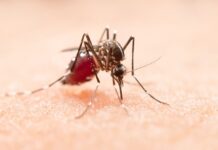Researchers at the University of Hong Kong’s State Key Laboratory for Emerging Infectious Diseases and the InnoHK Center for Virology, Vaccinology and Therapeutics (CVVT) have developed a nasal spray vaccine targeting the H5N1 avian influenza virus. This innovative platform, based on an influenza virus vector, represents a major step forward in pandemic preparedness. Their findings appear in Nature Communications.
Building on Pandemic Lessons
During the early stages of the COVID-19 pandemic, the HKU-CVVT platform enabled the rapid creation of a nasal spray COVID-19 vaccine in collaboration with Wantai BioPharm, mainland China. After successful Phase 1–3 clinical trials, the vaccine received approval in 2022, becoming the world’s first nasal spray COVID-19 vaccine.
The global experience with COVID-19 highlighted the devastating impact of respiratory viruses, not only on human health but also on economies and societies. Although SARS-CoV-2 is now largely seasonal, experts, including the World Health Organization (WHO), warn that new pandemics—like the hypothetical “Disease X”—are inevitable.
H5N1: A Potential Pandemic Threat
First identified in humans in Hong Kong in 1997, the H5N1 avian influenza virus has since spread worldwide, mutating and infecting multiple species. In early 2024, the virus triggered widespread outbreaks in U.S. dairy farms, resulting in human cases and persistent transmission among cattle and other animals.
Alarmingly, genetic mutations have increased the virus’s ability to bind to human upper respiratory tract cells. If H5N1 adapts further—or recombines with seasonal flu strains—it could ignite a high-risk pandemic. In response, the United States has invested $500 million into mRNA-based vaccine research to prepare for such a scenario.
Why a Nasal Spray Vaccine Matters
As reported by medicalxpress, the COVID-19 pandemic taught us a critical lesson: fast, safe, and effective vaccines are the cornerstone of outbreak control. Although current intramuscular vaccines—such as mRNA formulations—reduce severe illness and death, they fail to stop transmission. This is because they produce systemic antibodies but do not generate strong immunity in the upper respiratory tract, where respiratory viruses first take hold.
Moreover, most current vaccines require multiple doses for full protection. In contrast, a nasal spray vaccine can offer single-dose protection by triggering mucosal immunity at the virus’s entry point. This makes it an ideal tool for rapid containment during outbreaks.
A New Weapon Against H5N1
To tackle the growing threat of H5N1, the HKU and CVVT team employed their influenza vector-based nasal spray platform to create a novel H5N1 vaccine. Animal studies confirmed that this vaccine is highly safe and elicits strong immune responses, including:
- Neutralizing antibodies,
- Robust T-cell activation, and
- Effective mucosal immunity in the upper respiratory tract.
These findings suggest that the nasal spray H5N1 vaccine could be a game-changer in pandemic defense, offering rapid, effective protection with a single dose.
























